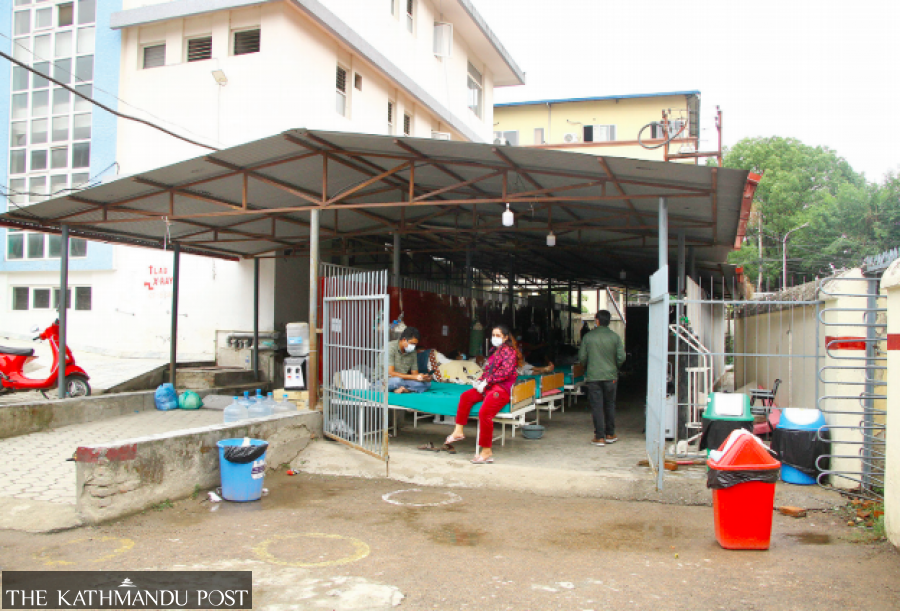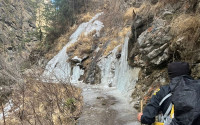National
Nepal’s response to Covid-19 failed to ensure people’s right to health, report says
The International Commission of Jurists says Nepal’s health system remains unprepared and defiant of a range of orders of the Supreme Court relating to the realisation of the right to health.
Binod Ghimire
Nepal’s responses to the Covid-19 pandemic have fallen short of meeting the country’s obligations to respect, protect, and fulfil the right to health guaranteed by Nepal’s constitution, national legislation and international obligation to human rights, according to a report by the International Commission of Jurists.
The report “Unprepared and Unlawful: Nepal’s continued failure to realise the right to health during the Covid-19 pandemic,” released on Tuesday says despite the huge loss to human lives and health during the first wave of the pandemic, the government failed to prepare for the second wave which had even more serious consequences.
Despite the gravity of the situation, then prime minister KP Sharma Oli made repeated statements downplaying the seriousness of Covid-19 which portrayed the lack of seriousness on the part of the government, according to the ICJ report.
Oli repeatedly said Covid-19 was like the flu, which can be “driven away by drinking hot water and sneezing”. He also made unsubstantiated claims that Nepalis have better immunity against Covid-19 because they breathe in fresh air and have ginger, garlic and turmeric as integral parts of their daily diet.
The government was sluggish in taking preventive measures, there wasn’t adequate testing and quality testing mainly in the first wave, security personnel used excessive force to impose lockdown, people lost lives in the lack of oxygen supplies and the treatment facilities, according to the report.
The report also says the quarantine centres and isolation wards lacked sufficient and proper facilities for isolation and quarantine, which led to the situation where Covid-19 patients were kept with non-Covid patients.
Similar to the commission’s observation, the National Human Rights Commission in its monitoring report in June last year had said the quarantine centres were turning into coronavirus breeding centres.
The ICJ report states that the erstwhile government faced different allegations over the procurement of testing kits, protective gear and medicines to combat the pandemic but it failed to take adequate measures to investigate the allegations.
“Poor management of restrictive measures taken, including lockdown measures and quarantine and isolation facilities, have given rise to a variety of health-related concerns related to human dignity leading to the violations of human rights in Nepal,” reads the report. “These and other issues arising from Nepal’s Covid-19 response must therefore be evaluated against Nepal’s obligations to respect, protect and fulfil the right to health as well as other human rights.”
Records at the Ministry of Health and Population show that a total of 779,492 people have tested positive for Covid-19 in the country as of Tuesday, while the countrywide death toll has now reached 10,984. The number of active cases stands at 26,202.
The ICJ report claims that the Nepal government has not adequately or appropriately adapted its health system to tackle the ongoing second wave of the epidemic while the health system remains unprepared and defiant of a range of orders of the Supreme Court relating to the realisation of the right to health.
At least nine rulings were made by the Supreme Court to deal with the health problems triggered by the pandemic.
The ICJ observes that the Supreme Court’s verdict appears to have had little effect on government conduct. It has suggested the Nepal authorities should ensure that the right to health is guaranteed to all people, in law and in practice, without discrimination on any status or grounds.
It has also said that the responsible ministerial authorities should collectively and individually ensure immediate compliance with, and implementation of, all Supreme Court orders, directing them to take measures to comply with human rights obligations in Covid-19 responses.
The government must deploy the country's maximum available resources to ensure vaccine access within the time frame, says the report.




 11.84°C Kathmandu
11.84°C Kathmandu













